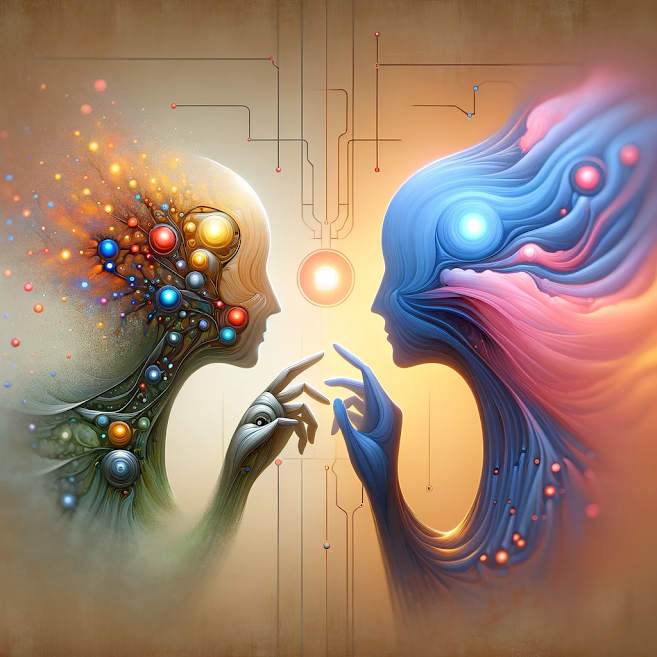A Universe of Signals: A Reflection on Life and Perception” [Written in 2016, translated from Arabic]
This is a translation of a blog post I originally wrote in Arabic on September 1st, 2016.
Have you ever paused to wonder about the meaning of life? About the true nature of our perception of existence and the world around us? Is everything we see and feel truly real, or is there more to what we sense than meets the eye?
What is life, truly? And how do we even know we’re alive?
We experience the world through our senses—seeing the beauty around us with our eyes, hearing the soft rustle of leaves or the chirping of birds, feeling the earth beneath our feet, the warmth of the sun on our skin, the pulse of life in our chests. This is how we know we are alive. This is how we exist—right here, right now, in this world. And this is what sets us apart from the dead: our awareness, our ability to feel and perceive the world around us.
But everything we experience, all that we know, is filtered through our senses. Can you imagine the shape of the world, the colors of a sunset, without your eyes to see? Could you hear the sound of your own breath without your ears to listen? What if we lost these senses—our ability to see, to hear, to touch and smell? What would the world look like then? What would life become?
Some children are born unable to see or hear, and in rare cases, even unable to feel. Some people cannot smell or taste. Now, imagine a child born without any of these senses—no sight, no hearing, no touch, no smell, no taste. What is life to them? What is existence? In their world, the universe does not exist, and neither does life. They are alive, yes, but without the ability to perceive, they cannot know they are alive. They cannot know we exist. To them, life and death are indistinguishable.
So, once again, what is life? What is the truth of our existence? Is it tied solely to what we can sense, or is there more? What if there are other senses, ones we cannot even fathom? What if there are layers of perception we have yet to uncover? This could reshape our understanding of reality entirely, even though we occupy the same physical space.
If we strip it all down scientifically, everything we experience—every sight, sound, taste, touch, and smell—is nothing more than electrical signals traveling from our senses to our brain. The most beautiful landscape you’ve ever seen, the sweetest fragrance you’ve inhaled, the softest fabric you’ve touched—are all just signals, pulses of electricity interpreted by our minds. Our entire reality is shaped by these impulses.
Consider this: scientists are already developing devices that mimic the senses, sending artificial signals to the brain. Imagine a device that could send electrical impulses simulating the experience of sitting on a warm beach, watching the waves roll in, and feeling the sand between your fingers. You could be sitting in a lab, far from any beach, yet experiencing it vividly, all through signals.
How do we know, then, that we are truly here? That we are not just brains somewhere, receiving signals that make us believe we are alive on Earth, feeling what we feel, living the lives we think we are living? It’s a question with no clear answer—a mystery we may never solve. But the possibility is real, perhaps even probable.
These existential questions rarely lead to easy answers. Sometimes, the purpose of asking isn’t to find a solution but to explore the depths of our existence, to challenge the boundaries of our perception.
So, the next time you see someone stunningly beautiful, taste a dish that overwhelms your senses, or hear a melody that seems to transcend reality, remember this: what you’re feeling might just be an electrical signal. It could be from your senses, or it could be from somewhere else, somewhere beyond our universe. But does it make the experience any less real?
In the end, our very existence could be nothing more than electrical signals firing in our brains—whether they’re coming from the world we know, or from somewhere far beyond it.



Comments
Post a Comment